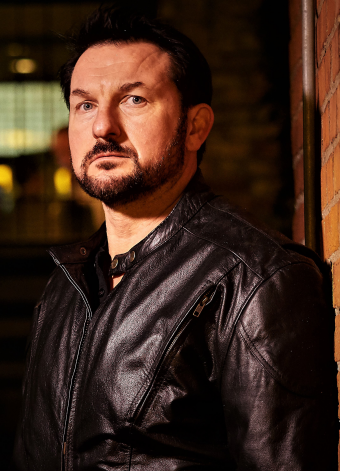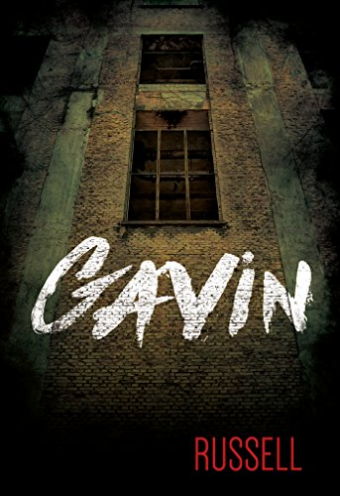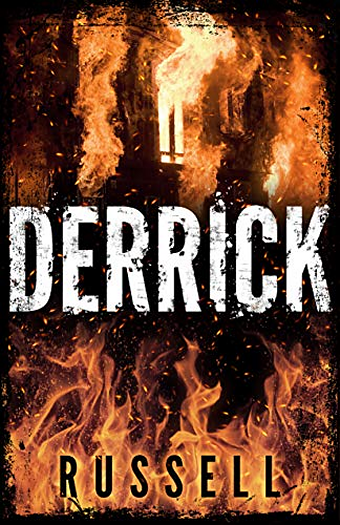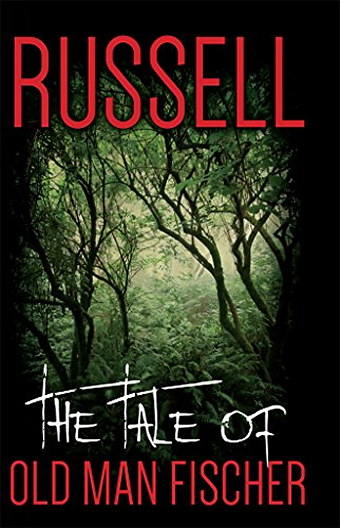Russell (The Author) Interview
 For nearly two decades, Russell was an executive chef in the restaurant industry, in which he created succulent entrees and managed various types of kitchen operations. In the last seven years, he began to teach future culinarians how to achieve their professional goals in hands-on classroom and lecture settings. With his recent graduate work in the field of sociology, his interests center on organizational behaviorism, social theory, and food insecurity.
For nearly two decades, Russell was an executive chef in the restaurant industry, in which he created succulent entrees and managed various types of kitchen operations. In the last seven years, he began to teach future culinarians how to achieve their professional goals in hands-on classroom and lecture settings. With his recent graduate work in the field of sociology, his interests center on organizational behaviorism, social theory, and food insecurity.
Russell has been writing for the majority of his life. He recently published The Tale of Old Man Fischer, GAVIN and DERRICK. Slipping into alternative universes allows Russell to enjoy the process of creativity from the novel’s conception to its final draft. Most importantly, inspiration is a continuous piece of his work and results from the world around him. Currently, he lives in Up State New York with his two children and several cats.
Please visit Russell at his website: https://russelltheauthor.com/.
And he also has these social media platforms:
Twitter: @Russell_Writer
Instagram: @Russell_Writer
Facebook: Russell (The Author)
Author page on Amazon
—————
What motivates you to write and how did you get started?
I’ve always written items. I suppose it really began when I read my first grown-up book: Stephen King’s Cujo. Immediately, I knew I wanted to be a writer.

In my youth, I wrote really snippets of character portrayals, dialogue, brief descriptions and attempts at short stories. In hindsight, these exercises forced me to become more ambitious. In my twenties, I actually wrote an entire untitled manuscript. Was it award winning? Absolutely not! However, it motivated me to produce my first published novel, The Tale of Old Man Fischer. Having been an Executive Chef for many years, my decision to publish was more about determination. From Old Man Fischer I learned quickly the in-and-outs (which is ongoing process) about the publishing world. Really, my obsession on writing ironically magnified when I began Graduate School. In-between the dense readings, endless papers and completing my thesis, I discovered writing to be a mental outlet. Thus, GAVIN appeared. Because of this, writing became a part of my blood. Consequently, I wrote DERRICK, QUINN, and The Eradication Initiative. Currently, I penning another piece with a working title called The Case of Scarborough Manor.
What’s most rewarding about writing?
Honestly writing has two great outlets. One, I create a whole altered universe which can surprise the reader as he or she turns the pages. Two, the ‘voices’ in my head get to tell their stories and share them to the world. Overall, I love it when I have great readers begging for more once they finish one of my books.
What’s your favorite genre and why?
I really enjoy horror, thriller and suspense. Suppose this obsession stems from my mother who loved cheesy slasher films. Today, I enjoy really bad horror films which I’m passing onto my daughter. The horror genre teeters on the social norms of what people should and should not do. Even more, bringing to life a diabolical being who terrorizes unsuspecting victims can be rather refreshing…and scaring the crap out of the reader at the same time is always thrilling.
Where do your characters come from?
That’s a difficult one to answer. When I begin a piece, a name usually comes to me. I build that character around it. Then his or her voice lends me a hand into their creation…really they control the typing. I sit back for the ride.
Who is an author who inspires you and why?

So many writers and so little time! I could go on and on about certain writing periods such as Midcentury Modern French writers, American Playwrights and even 19th Century British authors. Today, many new and upcoming writers whom I have recently read are certainly good contenders for modern classics.
I will give you a short list:
Anne Rice: Her attention to details in a story is brilliant.
Arthur Miller: His dialogue sequences are absolutely superb.
Peter Straub and Clive Barker: They hooked me on scary, horrifying stories.
John Connolly: His use of reality and subtle mysticism is sublime.
Alice Walker: Her talent of creating emotional scenes is powerful.
William Shakespeare: Yes, I include him. He combined both heavy dramatic and light comedic elements in scenes in order to keep the audience and reader latching on each and every word. In other words, his use of layering storylines is what I enjoy the most.
What do you look for in other people’s books?
To be blunt, a phenomenal story line becomes paramount element as I turn the pages. When the author has spent time to develop a brilliant plot and enhance characters to a three-dimensional level, I am hooked. More so, if the author does not have me hooked after the first chapter, then I put it away. I don’t waste my precious time. Truthfully, NY Best Sellers rarely have a continuing passion for decent story lines. These authors churn endless pages of boring dialogue and predictable plots. This is why I exclusively read indie writers for that reason.
Tell us about your newest book or what you’re writing now.
Currently, I am editing QUINN, which is the finale in the Gavin Nolan Trilogy. QUINN takes the reader a darker, bloodier and even provocative journey to the end of the trilogy which will leave the reader guessing to the very last page. Recently, I wrote The Eradication Initiative – a twisted near future horror piece. Soon after the next draft of QUINN, I will be editing that opus. On top of this all, I am writing a ghost story set in Up State New York (The Case of Scarborough Manor). But only writing in small parts because I’m scaring myself even in the daylight.
What kind of book would you like to be known for?

Any book would nice 🙂
What has writing taught you about yourself?
As my editor once said (in a very good way), I’m one of ‘those writers’. When I sit down in front of the keyboard, it literally is a blank screen. Typically, the prologue/first chapter and a specific character churns in my head for some time (usually over martinis). Once I start writing, the characters and story guide me along for the ride. About half way through, I can ‘see’ a possible ending and then it becomes fun seeing how the story eventually winds up there. In the next draft, I usually re-organize it and make side notes here and there in order to make the manuscript stronger. Really, I do remember most of it as I plug away. Seriously, it isn’t until the third draft that I actually create an outline, character descriptions, time lines, etc. After another read through, I send it off to my wonderful editor…Essentially, I write for my readers. If I’m surprised by what happens to my characters, I believe my readers will be as equally elated.
How has your life experience influenced your writing?
Through the trials and tribulations of my life, some of situations have indirectly appeared. For example, in Old Man Fisher, Shane’s mother and father work in the restaurant industry. From a child’s point of view, the reality of how working parents with long uncompromising hours juggle a family lifestyle. Very true to my reality of having been an Executive Chef and raising my children. The question remains: How can I not include life experiences into my stories? Authors draw on those moments to develop that world.
What encouraging advice can you offer new writers?
Three things and I’ll keep it simple:
*Write, write and then write some more!
*Lock in on a decent and affordable editor. While you may be critical of your own work, you always need another pair of eyes to scrutinize it.
*A former chef, who I had a privilege to work under, gave me the best advice for the restaurant industry. Something I even tell my new culinary students. But it carries over to the publishing industry quite well: ‘You are only as good as the last meal you served’…